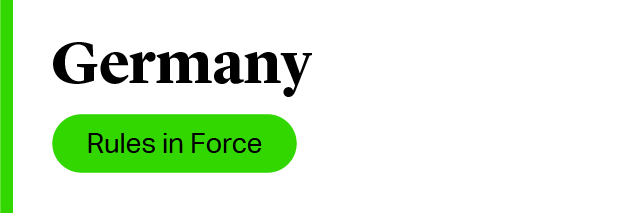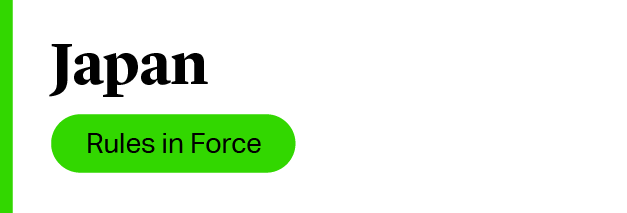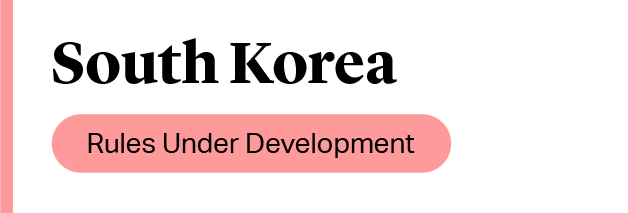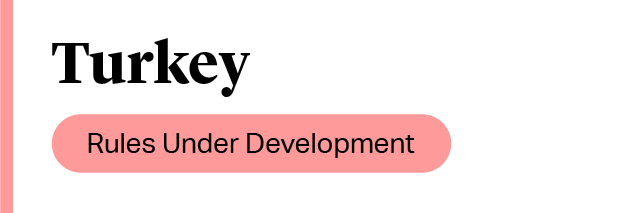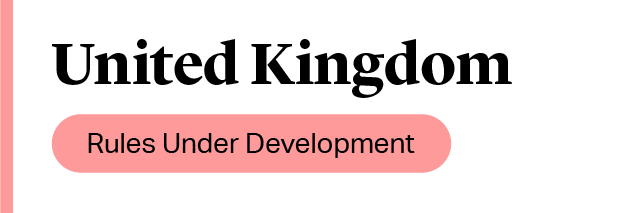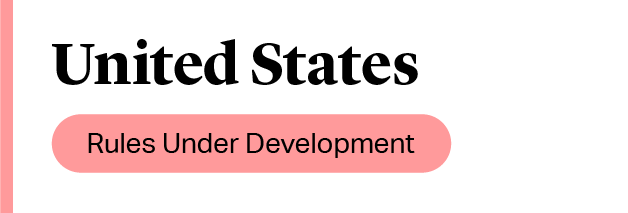South Korea
Korea’s Telecommunications Business Act imposes specific obligations on app store operators. Other digital regulations have been introduced as bills, although the new Government is looking at setting up a framework of digital platform self-regulation as an alternative. Digital markets remain an enforcement priority area for the Korean competition authority under existing competition law rules. In particular, the Korean authority has issued a proposal for new guidance on how it will assess abuse of dominance by online platforms, signaling its focus on the digital sector.
Authored by Henry Mostyn & Bianca Buzatu
Updated as of December 2023

South Korea
Korea’s Telecommunications Business Act imposes specific obligations on app store operators. Other digital regulations have been introduced as bills, although the new Government is looking at setting up a framework of digital platform self-regulation as an alternative. Digital markets remain an enforcement priority area for the Korean competition authority under existing competition law rules. In particular, the Korean authority has issued a proposal for new guidance on how it will assess abuse of dominance by online platforms, signaling its focus on the digital sector.
Authored by Henry Mostyn & Bianca Buzatu
Updated as of December 2023

-
1. What rules govern competition in digital markets in South Korea?
-
Competition in digital markets is governed by general Korean competition law, including the Monopoly Regulation and Fair Trade Act. On 12 January 2023, the Korea Fair Trade Commission (“KFTC”) released its proposed new Guidelines for Review of Abuse of Dominance and Unfair Trade Practices by Online Platform Operators (the “Online Platform Guidelines”). Online platforms include online intermediation services, online search engines, digital content services, operating systems and online advertising services. The Online Platform Guidance covers aspects relevant to assessing market definition, market dominance and anticompetitive effects, for example:
- When assessing market definition, the KFTC may focus on the practical and resulting harmful effects from the conduct given the dynamic nature of the online platforms sector, rather than merely focusing on a theoretically accurate market definition.
- When assessing market dominance, the KFTC may consider barriers to entry due to cross-platform network effects, the platform’s influence as a gatekeeper and ability to collect, retain and use data, and potential new entrants.
- When assessing anticompetitive effects, the KFTC may consider not only changes in prices and output but also any decrease in the variety of products or services, deterioration of quality, higher costs for users and effects on innovation.
- The KFTC lists specific examples of unlawful conduct it will seek to regulate in the future, namely: restrictions on multi-homing, demanding most favored nation clauses, self-preferencing, and tying.
Korea was the first jurisdiction to implement─and enforce─legislation targeting specific exclusionary and unfair conduct by digital platforms. In particular, the Telecommunications Business Act has been amended to impose particular obligations on app store operators (the “TBA Amendment”) (see Question 5). This amendment took effect on September 14, 2021.
Other proposed legislation and rules governing competition in digital markets include:
- The Fairness in Online Platform Intermediary Transactions Act and the Act on Protection of Online Platform Users, which include restrictions on the terms and conditions of online intermediation platforms, price transparency obligations, and rules on the use of data generated on the platform.
- The Act on the Consumer Protection in Electronic Commerce, which includes consumer protection rules for online retailers and other platform operators.
- The Act on Protection of Newspapers, which imposes an obligation on online news service providers to remunerate news publishers.
Following the 2022 elections, the Government decided to set up a framework for platform self-regulation as an alternative to these measures.
Earlier this year, the Korea Communications Commission (“KCC”), the Ministry of Science, and ICT publicly consulted on amendments to the Telecommunications Business Act to establish a legal framework for online platform self-regulation. The amendments will establish a legal basis for self-regulation by digital platforms and the government's corresponding support, regulatory actions and stakeholder engagement. As of November 2023, the amendments are pending the President's approval and proclamation, after which they will be submitted for review by the Parliament.
In the meantime, in August 2022, the KFTC announced a survey into online platform sectors in order to identify unfair trade practices.1 The KFTC intends to use the survey to identify potential enforcement cases and devise a suitable and timely policy for digital platforms. The results of this survey are yet to be announced.
-
2. What is the status of any forthcoming digital regulation in South
Korea?
-
The TBA Amendment, which introduced new rules specific to app stores, entered into force on September 14, 2021.2 The status of other legislative proposals remains unclear due to the Government’s new emphasis on self-regulation by digital platforms (see Question 1).
September 0, 2021THE TBA AMENDMENT, WHICH INTRODUCED NEW RULES SPECIFIC TO APP STORES, CAME INTO FORCE ON SEPTEMBER 15,2021. -
3. How are the rules enforced or expected to be enforced?
-
The KFTC is generally responsible for enforcing competition law and digital markets regulation in Korea. In January 2022, the KFTC announced that its “ICT Task Force” would be reorganized into a more comprehensive “digital market response team” that will be better able to deal with fast-paced and multi-faceted digital markets.
JANUARY 2000IN JANUARY 2022, THE KFTC ANNOUNCED THAT ITS “ICT TASK FORCE” WOULD BE REORGANIZED INTO A MORE COMPREHENSIVE “DIGITAL MARKET RESPONSE TEAM” THAT WILL BE BETTER ABLE TO DEAL WITH FAST-PACED AND MULTI-FACETED DIGITAL MARKETS.The Telecommunications Business Act, which includes the new rules specific to app stores, is enforced by the KCC, despite the competition law focus of the rules.
If the Government follows its current proposed path of self-regulation, it is unclear whether there would be any oversight of the firms subject to the rules that are introduced.
-
4. Which firms do the rules apply to?
-
Currently, the only new digital sector regulation in force─the TBA Amendment─applies to businesses that operate app stores that intermediate transactions of mobile content.
Other rules that have been proposed (see Question 1) would apply to digital platforms such as app stores, online marketplaces, online shops, online news services providers, search engines, and others.
-
5. What are the main substantive rules that govern the firms covered
by the digital regulation?
-
The TBA Amendment prohibits app store operators from:3
- Requiring app developers to use a specific payment method or preventing promotion of other payment methods by unfairly taking advantage of their superior bargaining position in intermediating transactions involving apps;
- Unfairly delaying the review of apps;
- Unfairly removing apps from their app stores; or
- Unfairly imposing discriminatory conditions and restrictions on app developers.
-
6. Are there specific rules governing digital platforms’
relationships with publishers?
-
If passed by the National Assembly, the proposed Amendment of the Newspaper Act would impose an obligation on online news service providers to pay compensation to news suppliers. It also provides for the establishment of a committee that would mediate disputes regarding payment of compensation by online news service providers and would have the authority to request submission of relevant materials.
The rules are not expected to come into force imminently, though, and their future is uncertain in light of the Government’s recent exploration of self-regulation as an alternative to legislation (see Question 1).
-
7. Does the authority need to establish the effects of certain
conduct in order to establish a breach of the rules?
-
Liability for breaches of the app store provisions of the Telecommunications Business Act referred to in Question 5 is strict. There is no need for the KCC to establish anticompetitive effects in order to find an infringement. However, certain aspects of the provision, such as notions of unfairness and superior bargaining power, imply that there needs to be unmeritorious conduct established based on evidence before an infringement can be found.
-
8. Can firms defend or objectively justify their conduct under the
new or proposed rules?
-
Liability for breaches of the app store provisions of the Telecommunications Business Act referred to in Question 5 is strict. There is no scope for firms to objectively justify their conduct.
-
9. What procedural safeguards do the rules include?
-
Under the Telecommunications Business Act, the KCC must inform the company of any measures it may seek to take and provide the company with an opportunity to be heard before issuing a formal order. The KFTC’s investigatory powers under general antitrust law are subject to the usual procedural safeguards. KFTC and KCC decisions are subject to appeal on the merits.
-
10. What kinds of penalties or remedies can be imposed following a
breach of the rules?
-
The regulator can issue a corrective order and/or impose a fine of up to 3% of the company’s average annual Korean revenue during the three preceding years. A criminal fine of up to KRW 300 million (approximately USD 250,000) is also possible.
-
11. Has the authority issued any guidance or reports regarding the
digital regulation?
-
An amended Enforcement Decree providing guidance on the new provisions in the TBA Amendment took effect on March 15, 2022.4 The guidance includes detailed information on relevant standards included in the app store rules, such as “bargaining position,” “forcedness,” and “unfairness”.5
The KFTC has a rich pipeline of reports in the digital sector. For example, it has commissioned a study titled “Review on M&A in the online platform sector and establishment of regulatory measures," scheduled for completion in Q4 2022. It has also completed, but has not yet published, studies titled “Investigation of Conditions in Digital Ad Markets” and “Competition/Consumer Issues and Proposals for Establishment of a Fair Trade Order in the Data Sector”, which may lead to additional rules or enforcement in these areas.
Finally, the KFTC has published for comment a set of proposed Draft Guidelines for Review of Abuses of Dominance and Unfair Trade Practices by Online Platform Operators, which include self-preferencing as a representative type of anticompetitive conduct in the online platform sector. It remains uncertain, though, when these guidelines will be implemented.
-
12. Has the authority issued any decisions under digital
regulations in South Korea?
-
No. Under the TBA Amendment, the KCC has conducted an initial examination of app market operators like Google, Apple, and One Store to identify possible violations of the new app store rules.6 The examination found that Google, Apple and One Store may be violating the new rules. As a result, in August 2022, the KCC announced that it would begin a fact-finding investigation to determine whether there have been any specific violations of the app store rules that warrant the imposition of a penalty or other corrective measures.7The KCC’s investigation remains ongoing.
-
13. Is the new regime competition based, or does it target other
types of conduct, such as consumer protection, moderation of content, or
privacy?
-
The TBA Amendment that imposes obligations on app store operators is principally competition-based, but some rules have a consumer protection flavor.
Other new laws in the digital sector that may be adopted are also expected to be competition-based with consumer protection and privacy elements. The self-regulation proposal is likely to seek to achieve similar goals.
-
14. What is the current enforcement practice with respect to conduct
that is expected to be addressed by the digital regulation?
-
Digital markets remain a priority area for the KFTC. For example, the agency is launching a market survey into online platform sectors with a view to identifying potential new cases and areas of concern. In recent years it has pursued investigations into the practices of international digital companies, including Apple8, Google,9 and Meta,10 as well as large Korean digital platforms, such as Naver11 and Kakao.12 In September 2022, the KFTC conducted a dawn raid in Apple’s Korea headquarters in connection with alleged abuse of its dominance in app stores.13
-
15. Are there merger rules specific to digital platforms in South Korea?
-
No. However, in December 2021, a transaction value jurisdiction threshold took effect under the Monopoly Regulation and Fair Trade Act. Under the new threshold, a transaction is notifiable if its value exceeds KRW 600 billion (approximately USD 540 million) and the acquired company is substantially active in the Korean market. This jurisdiction test applies to all firms, not only digital platforms. However, as with other jurisdictions that have implemented transaction value tests (e.g., Germany and Austria), its introduction follows growing concerns about so-called “killer acquisitions” where large firms, especially in the digital sector, acquire nascent potential competitors with small current revenues.
According to press reports, the KFTC is preparing an administrative notice to put in place new criteria for merger control reviews for transactions involving digital platforms, expected in the second half of 2023.14
KRW 0bnUNDER THE NEW THRESHOLD, A TRANSACTION IS NOTIFIABLE IF ITS VALUE EXCEEDS KRW 600 BILLION (APPROXIMATELY USD 540 MILLION) AND THE ACQUIRED COMPANY IS SUBSTANTIALLY ACTIVE IN THE KOREAN MARKET.
Contacts
Henry Mostyn
Partner
Bianca Buzatu
Associate









